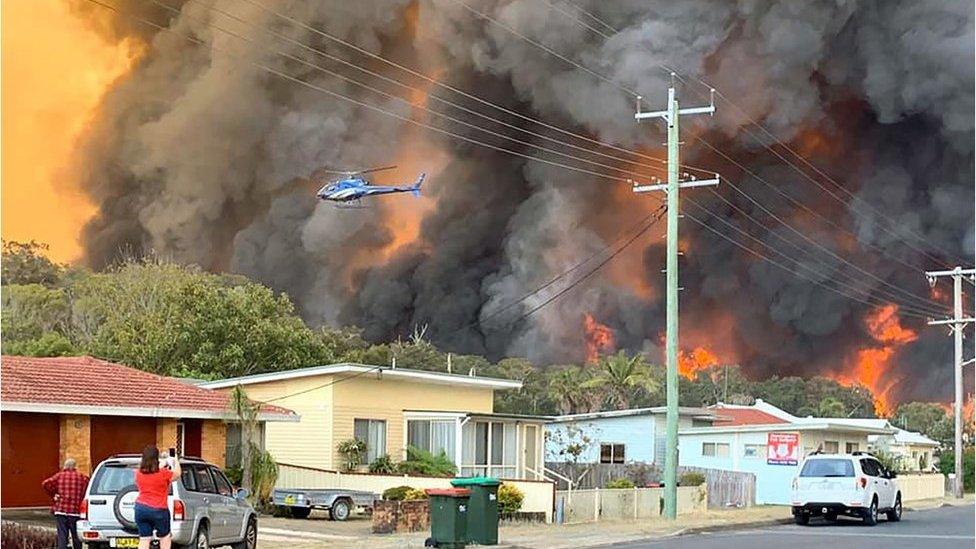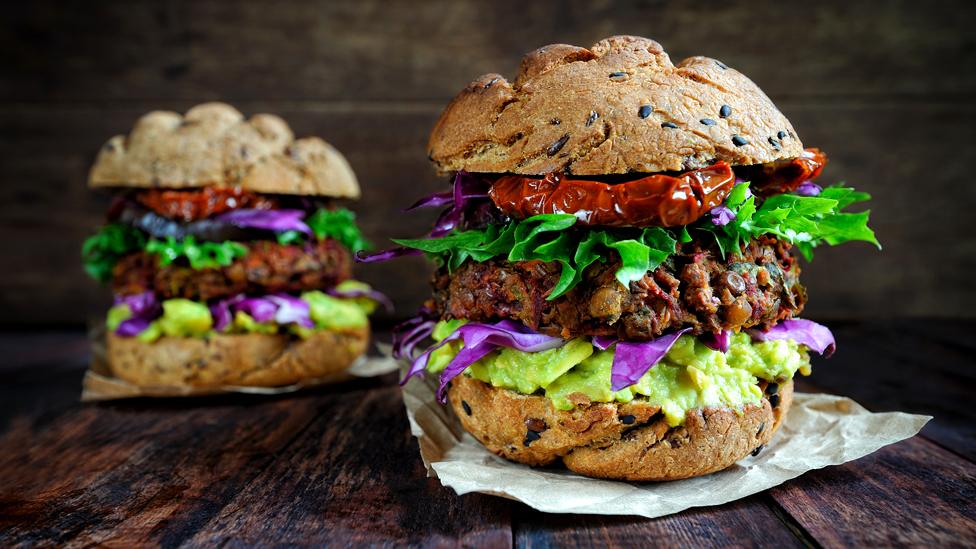Climate change is a threat to our security - Boris Johnson
- Published

Scientists say climate change had an impact on bush fires in Australia in recent years
"Climate change is a threat to our security," Boris Johnson told world leaders as he chaired a United Nations Security Council session.
It is the first time a British PM has chaired such a meeting since 1992.
Other speakers included broadcaster Sir David Attenborough, UN Secretary General António Guterres and Sudanese climate activist Nisreen Elsaim.
The UK holds the presidency of the Security Council this month and hosts the COP26 climate summit in November.
The summit in Glasgow will be attended by dozens of world leaders and is likely to be the most significant round of talks since the global Paris Agreement to tackle climate change was secured in 2015.
At the council meeting, Mr Johnson said some would argue "all this green stuff from a bunch of tree-hugging tofu-munchers" is not a suitable subject for a UN meeting.
"I couldn't disagree more profoundly," he said adding that the council need to act to protect "peace, security and stability" around the world.
"Whether you like it or not it is a matter of when, not if, your country and your people will have to deal with the security impact of climate change," he said.
He also highlighted measures the UK was taking to reduce emissions and stressed the importance of helping vulnerable countries "adapt and build resilience".
A Greenpeace spokesperson accused the PM of "weapons-grade hypocrisy" for demanding action while "planning new coal mines at home and stripping funds for carbon-cutting energy efficiency measures".
"Until the government starts taking the prime minister's advice, his climate leadership will lack any credibility," they said.


This is the latest in a series of prime ministerial rallying calls on climate change.
The year is providing a remarkable stage for Boris Johnson's ambition on the topic - from the Security Council to the chairmanship of G7 in June, culminating in the vital Glasgow climate summit in November.
But as he bestrides the global stage, the PM is under fire for his performance at home.
His crucial project to cut emissions from home heating - the Green Homes Grant, external - is in disarray, with the chancellor pulling out funds.
His government is building the high-speed rail HS2, which is likely to be adding to carbon emissions until the back half of the century. And he's promoting a £27bn road-building programme.
What's more, the PM is risking his international reputation by permitting a new coal mine in Cumbria while urging other nations to relinquish coal.
Environmentalists say it's time for him to match words with deeds.
Follow Roger on Twitter @rharrabin, external

Speaking at the start of the meeting, Sir David said climate change posed "threats to security of a new and unprecedented kind".
He said changes in patterns of weather would "turn forests into deserts and drown great cities".
And he warned that the world is "perilously close to tipping points that once past will send global temperatures spiralling catastrophically higher".
"If we continue on this path we will face the collapse of everything that gives us our security - food production, access to water, ambient temperatures and ocean food chains," he said.
However he also said the COP26 conference, new technologies and public support for change offered "grounds for hope".
Climate change could destroy "entire cities" in a matter of decades, says Sir David Attenborough
Ms Elsaim - who chairs the UN's Youth Advisory Group on Climate Change - told the meeting that her country of Sudan was top of the list "when it comes to climate instability".
She said drought and food insecurity would lead to large-scale migration making "conflict inevitable".
The UN Security Council is made up of five permanent members - China, France, Russia, the UK and the US - and 10 non-permanent members elected for two-year terms.
- Published16 January 2020

- Published20 May 2020

